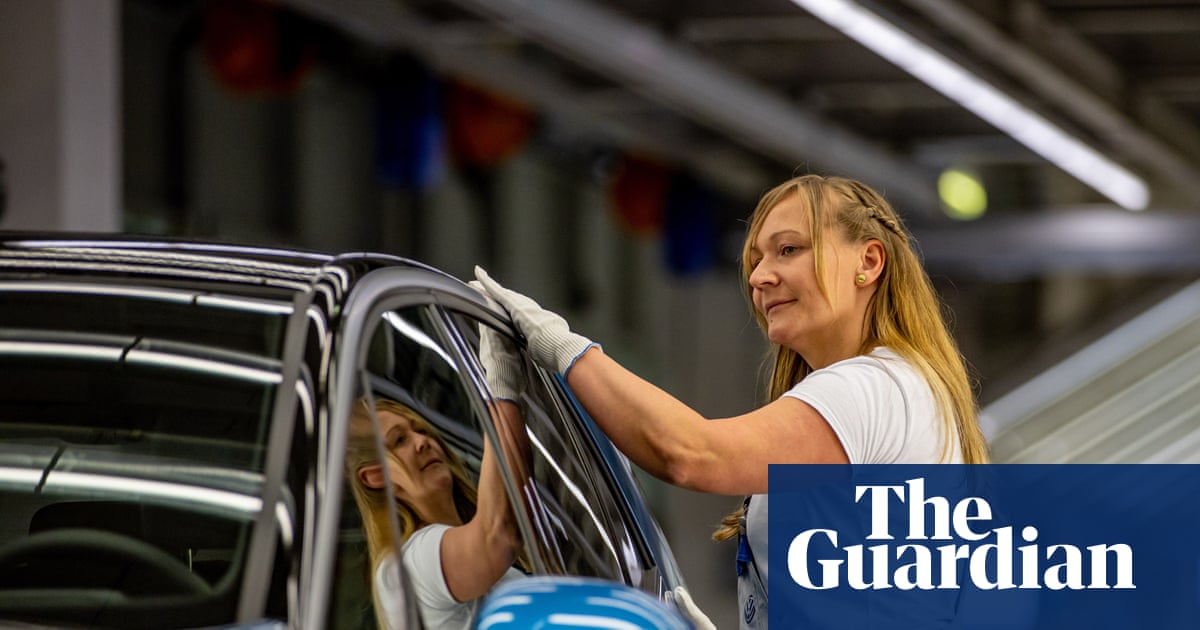Volkswagen is to pause production at two of its plants in Germany because of weak demand for fully electric cars.
The carmaker will suspend work for one week next month in Dresden as well as at its EV plant in Zwickau, which produces six EV models for VW, Audi and Cupra.
It also plans to shorten the working week by a day at a third plant in Osnabrück in Lower Saxony.
The decision by a company emblematic of Germany’s position as the engine of the EU’s economy, will be seen as a dent in the union’s hopes of switching the continent to electric vehicles in the next 10 years.
Closure days are also being considered at a fourth plant in Emden, which makes the ID.4 and ID.7.
Zwickau in Lower Saxony has been converted to electric car production with the last combustion engine rolling off the assembly line in 2020. The switch ended 116 years of history that included production of the Trabant car before German reunification.
Stellantis, which owns Fiat and Peugeot, has announced a pause in production at several European factories for similar reasons to VW.
A VW spokesperson said: “Volkswagen is adjusting the production programme at its plants to match current customer demand for the models built there. In some plants, this will lead to shift cancellations in the coming weeks, while in others it will result in additional shifts.”
Weekend shifts will be added at VW’s Wolfsburg plant, which is considered the home of the company and its combustion engine cars.
Sales of EVs slowed last month while demand for hybrid battery models soared, underlining continued consumer fears over range and charging issues.
Data from the European Automobile Manufacturers’ Association shows that, while EV take-up in Norway is high, adoption elsewhere in Europe, including France and Germany, is slow. In southern Europe, where there is little EV charging infrastructure, demand is particularly weak.
Overall, just 16% of new car sales are EVs, according to the association’s data. The figure for hybrids is 37%.
after newsletter promotion
Chinese brands are making significant inroads in the European market with sales of the BYD brand up by nearly 250% in the first eight months of this year compared with the same period in 2024.
Last week, VW’s chief executive, Oliver Blume, said manufacturers were experiencing “massive changes” with “a clear drop in demand for battery-electric cars”.
The company’s ID models are among the EU’s top sellers but the smaller ID.4 has been particularly vulnerable to punishing tariffs imposed by Donald Trump, the US president.
According to VW’s publicity material “almost every second registered electric car of the Volkswagen Group worldwide comes from Zwickau”.
